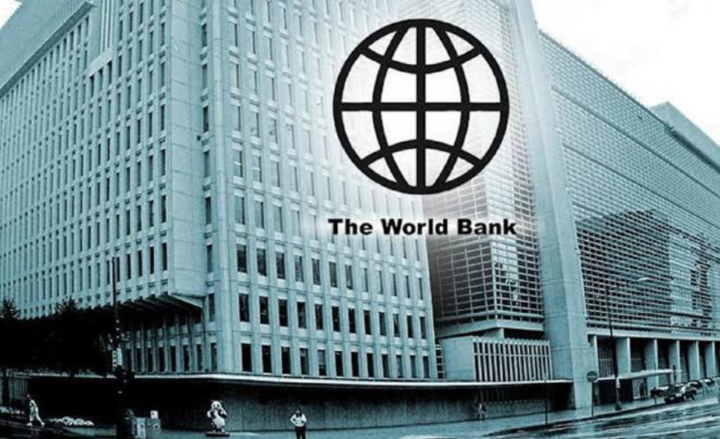The World Bank has advised the Federal Government of Nigeria to take urgent and deliberate steps to bridge the widening trust gap between the government and its citizens. The international financial institution noted that for the country’s economic and social reforms to be successful and sustainable, the people must believe that government actions serve their interests and reflect transparency, fairness, and accountability.
According to the World Bank, the success of Nigeria’s ongoing fiscal and structural reforms largely depends on the restoration of public confidence in governance. The call comes at a critical time, as the country is undergoing a series of economic reforms aimed at reducing its reliance on oil revenues, improving tax collection, eliminating fuel subsidies, and addressing macroeconomic imbalances. These reforms, while necessary, have come with significant short-term economic hardships, which have heightened public skepticism and frustration.

In its latest policy advisory, the World Bank observed that one of the most significant challenges facing Nigeria today is the erosion of what it termed the “fiscal social contract.” This refers to the understanding that citizens contribute through taxes and compliance with the law, while the government delivers essential services such as infrastructure, security, healthcare, and education. The Bank warned that where citizens do not see a direct correlation between their sacrifices and government performance, disillusionment and resistance to policy initiatives tend to follow.
The Bank emphasized that the lack of trust is not merely a perception issue but a deep-rooted governance challenge. It cited various studies showing that a majority of Nigerians are unclear about how public funds are managed and used. Many feel excluded from the policymaking process and view government institutions as opaque and unaccountable. This disconnect has led to low voluntary tax compliance, weak civic engagement, and frequent public protests, all of which threaten the stability of reform programmes.
The World Bank further noted that rebuilding trust requires more than speeches and promises. It involves structural changes that prioritize citizen participation, fiscal transparency, service delivery, and the rule of law. The Bank advised that one of the most effective ways to restore confidence is for the government to demonstrate that public resources are being used efficiently and equitably, with visible results in communities across the country.
It pointed to examples from other countries where open budgeting, participatory governance, and digital transparency platforms have helped rebuild trust between governments and their people. In some cases, communities were involved in deciding how a portion of the budget would be spent, which created a sense of ownership and accountability. The World Bank suggested that similar practices could be introduced in Nigeria at both federal and state levels.
The report also recognized some steps taken by Nigerian authorities, such as the establishment of beneficial ownership registers, the expansion of digital tax systems, and improvements in procurement processes. However, it insisted that these efforts must be scaled up, institutionalized, and accompanied by real consequences for corruption, mismanagement, and abuse of public office.
In particular, the World Bank called on the Federal Government to strengthen institutions that promote accountability, including anti-corruption agencies, audit offices, and civil society watchdogs. It urged better communication with the public regarding the aims and expected outcomes of major reforms. It also advocated for open access to data on government revenue, expenditures, and contracts.
The Bank stressed the importance of citizen feedback mechanisms. It advised that platforms be created to allow ordinary Nigerians to monitor government projects and provide input on public service delivery. This would not only increase transparency but also foster a sense of shared responsibility and national cohesion.
The report also touched on the role of the media and civil society in holding leaders accountable and ensuring transparency. It called on government at all levels to protect press freedom and create a safe environment for civic engagement. By empowering citizens to participate in governance, the Bank believes that trust in public institutions can be rebuilt over time.
Moreover, the World Bank warned that failure to address the trust deficit could lead to greater resistance to policy changes, especially in times of economic strain. It argued that without legitimacy in the eyes of the public, reforms, no matter how well-designed, would face opposition or indifference. In contrast, a government that is seen to be honest, inclusive, and responsive is more likely to rally support for difficult but necessary policy decisions.
The World Bank’s message to Nigeria is clear: trust is a critical asset in governance and development. Reforms must be people-centered, transparent, and results-driven. In rebuilding trust, the government does not only secure the success of its policies but also strengthens the very foundations of democracy, stability, and national progress.
As Nigeria continues on the path of reform, it must realize that public support is not automatic—it must be earned. Trust cannot be legislated or enforced; it must be built through consistent, honest, and accountable leadership. Only then can the country hope to overcome its development challenges and unlock its full potential for future generations.
Support InfoStride News' Credible Journalism: Only credible journalism can guarantee a fair, accountable and transparent society, including democracy and government. It involves a lot of efforts and money. We need your support. Click here to Donate
